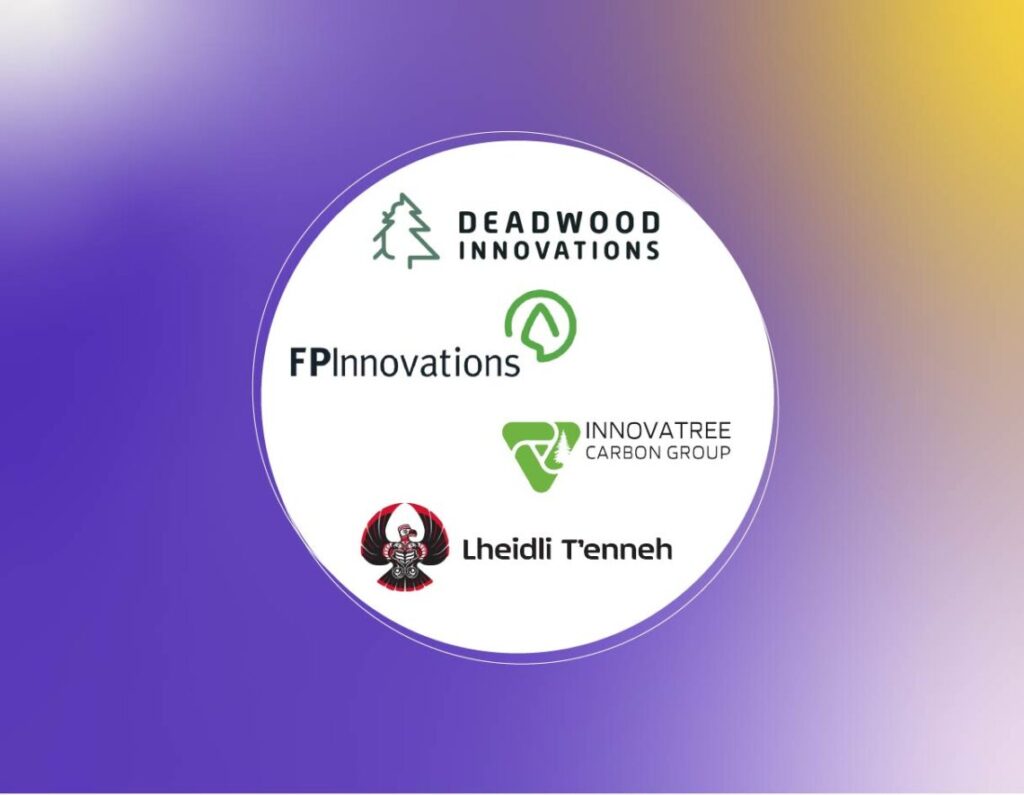
CICE doles out $2.6M for B.C. forest residue management projects
November 16, 2023
By B.C. Centre for Innovation and Clean Energy
 Photo: B.C. Centre for Innovation and Clean Energy
Photo: B.C. Centre for Innovation and Clean Energy Announced at CICE Converge 2023, the B.C. Centre for Innovation and Clean Energy (CICE) is investing $2.6 million to advance innovative solutions that can reduce emissions or create new clean energy feedstocks, while also addressing the pressing challenge of sustainably managing wood waste and increasing wildfire resiliency within British Columbia. This non-dilutive funding will fast-track the commercialization and scaling of solutions across the entire forest residue management value chain, including collection, transportation, processing and end-use.
In 2023, Canada experienced its worst wildfire season on record, posing threats to lives and significantly increasing greenhouse gas emissions. During the high fire years of 2017, 2018 and 2021, B.C. wildfires alone emitted 150-200 million tonnes of carbon dioxide equivalent emissions.
Elevating commercial interest in forest residues is challenging due to limited economic value, rugged terrain, and transportation distances, often resulting in slash piles that are burned on site. One of the strategies to reduce the intensity of wildfires is tree thinning, but this results in more forest residues and flammable deadfall. Historically, B.C. has burned about 4.6 million green metric tonnes of forest residue annually, further increasing emissions.
This call for innovation invited B.C.-based companies to propose solutions and commercial pathways to increase resilience in B.C. forests. This includes strengthening the forest residue management value chain, diversifying wood waste utilization opportunities, and reducing carbon emissions.
CICE launched the call for forest residue management innovation in June 2023 and fielded over 200 potential applicants. Three of the four selected projects demonstrate significant Indigenous leadership showcasing inclusive equity partnerships and collaboration for maximum positive impact:
Deadwood Innovations has partnered with Nak’azdli Development Corporation and is developing a first of its kind thermo-chemical process to transform low-quality forest residue waste and damaged timber into a high-value, commercial wood product with enhanced strength, stability, and hardness. In addition to offering a low-emission, economically viable alternative for managing and utilizing forest residue, this unique fibre upgrade process also contributes to positive social, economic and environmental outcomes, with a particular focus on benefitting Indigenous communities.
FPInnovations, in partnership with Tycrop Trailers, West Fraser, and Lhoosk’uz Dene Nation is developing and commercializing a novel hybrid electric configuration combining existing forest sector trucks with a newly developed electrical trailer to reduce fuel use, GHG emissions, the cost of operation, and recover more fibre.
Innovatree Carbon Group (ICG) is boosting tree seedling survival and carbon sequestration in the southern interior of B.C. by using its proprietary biochar mixture as a large-scale replacement for peat moss. Peat moss, known to emit significant amounts of greenhouse gases, is less effective when growing trees in drought-prone and wildfire-damaged landscapes. Biochar derived from wood waste excels at retaining moisture and nutrients, and is considered one of the most effective carbon sequestering materials on the planet. ICG is paving the way for healthier forests and a sustainable future, making every tree count for the climate.
Lheidli T’enneh First Nation, in partnership with Arbios Biotech, Canfor, and LTN Contracting, is testing an end-to-end solution that economically gathers and converts forest residues to renewable bio-oil, which can be used to produce sustainable aviation fuel (SAF). This Indigenous-led project will test the feasibility of a new generation of biofuels by converting locally sourced forest residues to renewable bio-oil, an alternative to fossil oil feedstocks.
Print this page